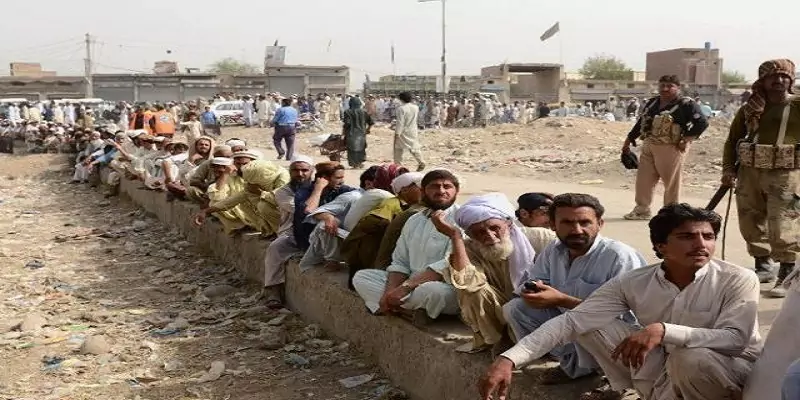Bannu
Bannu, situated in the Khyber Pakhtunkhwa (KPK) province of Pakistan, is a city with a rich history, vibrant culture, and a unique blend of tradition and modernity. As we delve into this comprehensive description, we will explore Bannu's geography, history, culture, economy, education, landmarks, and the city's significance in the larger context of the KPK region.
Bannu is strategically located in the southeastern part of KPK, bordering the North Waziristan tribal district. The city lies on the banks of the Kurram River, contributing to the region's agricultural fertility. The surrounding landscape is characterized by flat plains and low-lying hills, creating a distinctive topography within the broader context of the province.
The history of Bannu is intertwined with the ancient roots of the Indian subcontinent. The region has seen various civilizations, including the Gandhara civilization, which left behind archaeological remnants that attest to Bannu's historical significance. Over the centuries, Bannu has been part of various empires, from the Mauryan and Gupta periods to the Mughal era.
Bannu is a melting pot of diverse cultures, with influences from Pashtun, Hindko, and other local ethnicities. The city is known for its traditional Pashtun hospitality, colorful festivals, and folk music. The bazaars of Bannu offer a vibrant display of local handicrafts, textiles, and traditional Pashtun cuisine. The people of Bannu take pride in preserving their cultural heritage while adapting to the changing times.
The economy of Bannu is primarily agrarian, with the fertile lands along the Kurram River supporting the cultivation of crops such as wheat, sugarcane, and fruits. Additionally, Bannu serves as a commercial and trade hub for the surrounding regions. The city's economy is also influenced by its strategic location near the border with North Waziristan, impacting trade and commerce.
Bannu has made strides in the field of education, with schools and colleges catering to the educational needs of the local population. The city is home to Bannu Medical College, contributing significantly to the education and healthcare sectors in the region. Efforts are ongoing to improve the overall literacy rate and educational infrastructure to empower the youth of Bannu.
Landmarks and Attractions:
1. Bannu Fort:
A historical fortress dating back to the British colonial period, Bannu Fort stands as a testament to the region's strategic significance. The fort offers a glimpse into the architectural styles of the past and provides panoramic views of the surrounding landscape.
2. Kurram River:
The Kurram River, flowing along the outskirts of Bannu, not only contributes to the city's agricultural prosperity but also provides a scenic backdrop for locals and visitors. Riverside areas are popular for picnics and leisure activities.
3. Haramosh Valley:
Situated near Bannu, Haramosh Valley is known for its natural beauty and hiking trails. The valley is surrounded by picturesque mountains, offering a serene escape for nature enthusiasts.
4. Ziarat Kaka Sahib:
A revered Sufi shrine, Ziarat Kaka Sahib holds spiritual significance for locals and attracts pilgrims seeking blessings. The shrine's architecture and peaceful surroundings make it a cultural and religious landmark.
While Bannu may not be as widely known for tourism as some other cities in KPK, it offers a unique experience for those seeking an authentic glimpse into Pashtun culture, historical landmarks, and the natural beauty of the region. The city's proximity to tribal areas and its historical sites make it an intriguing destination for explorers interested in off-the-beaten-path experiences.
Bannu experiences a semi-arid climate, characterized by hot summers and relatively mild winters. The summer temperatures can be high, making the winter months more comfortable for outdoor activities and exploration. The city's climate is influenced by its geographical location within the larger KPK region.
Bannu's infrastructure has seen development in recent years, with efforts to improve roads, connectivity, and basic amenities. The city's location near the border has implications for its infrastructure, and ongoing projects aim to enhance the overall living conditions for the residents of Bannu.
As Bannu looks to the future, there are aspirations for continued development, both economically and socially. Efforts are being made to enhance educational opportunities, promote sustainable agriculture, and attract investments for economic growth. The city's strategic location near the tribal areas also positions it as a potential hub for trade and commerce.
Bannu, with its historical roots, cultural diversity, and natural beauty, stands as a unique entity within the tapestry of Khyber Pakhtunkhwa. As the city evolves, it retains its cultural identity while embracing progress and development. Bannu's significance in the region goes beyond its geographical borders, making it a noteworthy part of the larger narrative of KPK, Pakistan.

